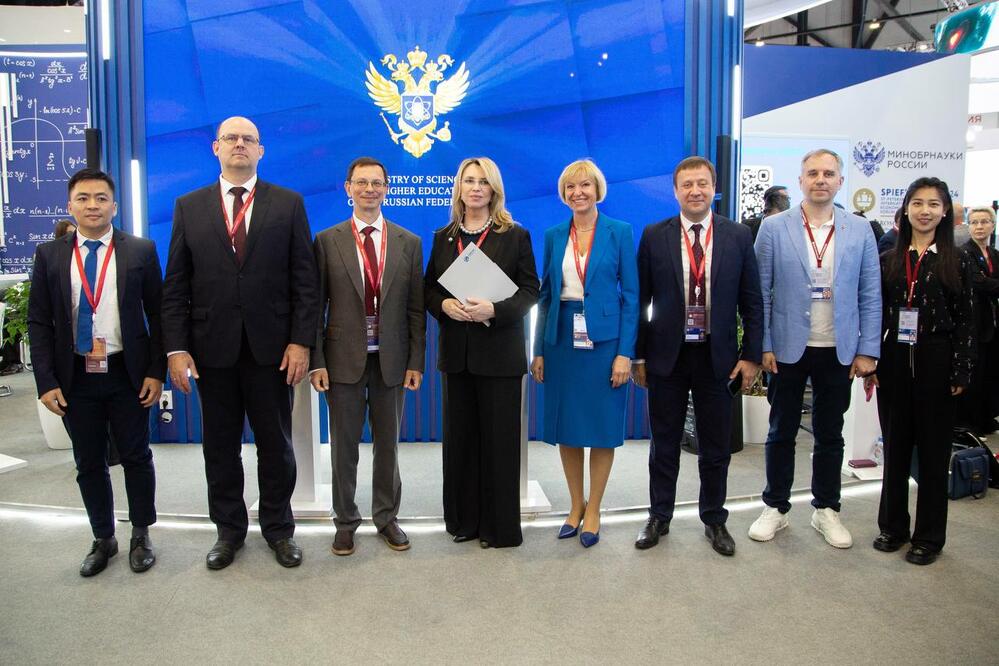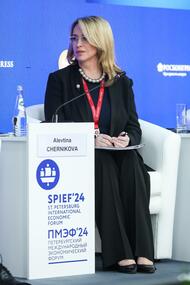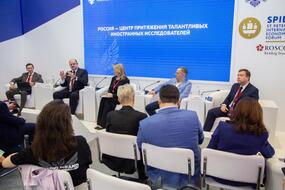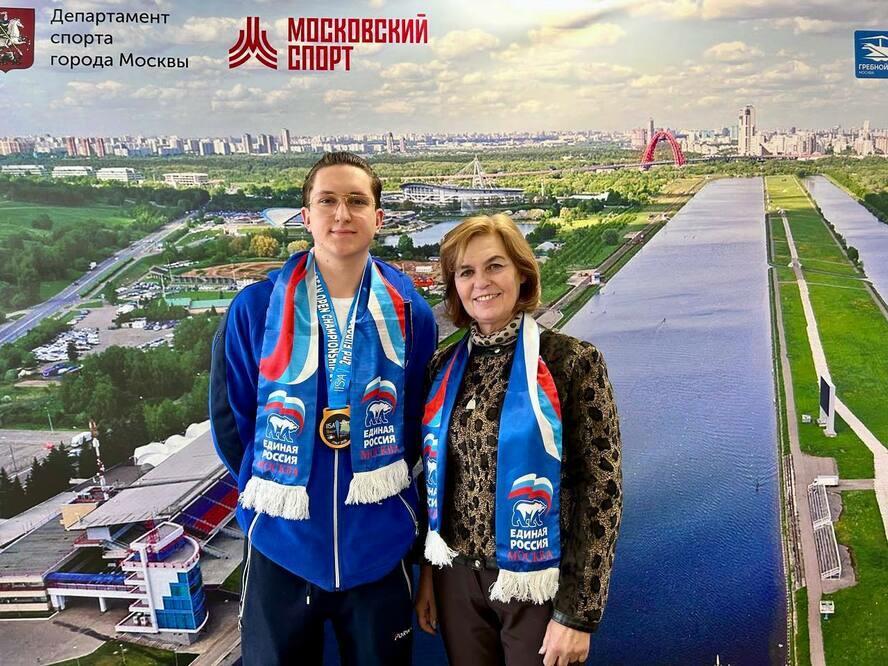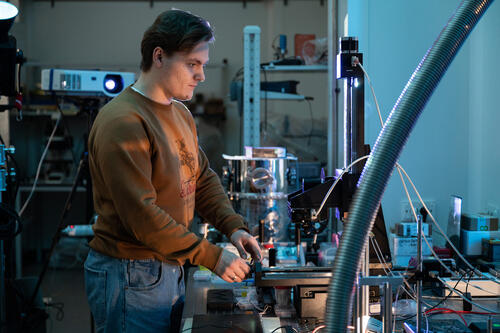MISIS University is actively participating in the XXVII St. Petersburg International Economic Forum. At the Ministry of Education and Science of the Russian Federation’s booth, a discussion titled Russia is A Hub for Talented Young International Researchers took place. The participants—university rectors and young international scientists—discussed tools for attracting promising foreign researchers to work in Russia.
In 2012, MISIS University was the first in the country to hold an open international competition to attract young researchers with experience at leading scientific and educational centers worldwide.
MISIS University’s research agenda is current and appealing to young researchers, including international ones, in several key areas, both traditional and new. For example, in the traditional field of mining, Hao Jie, a young researcher from the People’s Republic of China, is conducting research on coal dust in the Physical Chemistry of Coals Laboratory, which develops solutions for a circular economy. Hao Jie is a master’s program student at MISIS University and actively participates in scientific activities and makes significant contributions to the university’s scientific projects, including those under the state Priority-2030 program. She is one of the authors of a methodology for assessing the long-term environmental impact of waste.
The Russian Language Center plays a crucial role in overcoming the language barrier by providing language support to students. The center’s staff offers individual consultations, thematic meetings of the Russian language conversation club, preparation for linguistic competitions and Olympiads, and teaches a special course in academic writing for master’s and postgraduate students.
The MISIS University Foreign Languages Educational Center, besides programs in European languages (English, German, French, Spanish), also successfully implements additional professional education programs in Chinese.
MISIS University is interested in attracting young international scientists who will bring interesting scientific challenges to our university and contribute to the development of new research directions.
